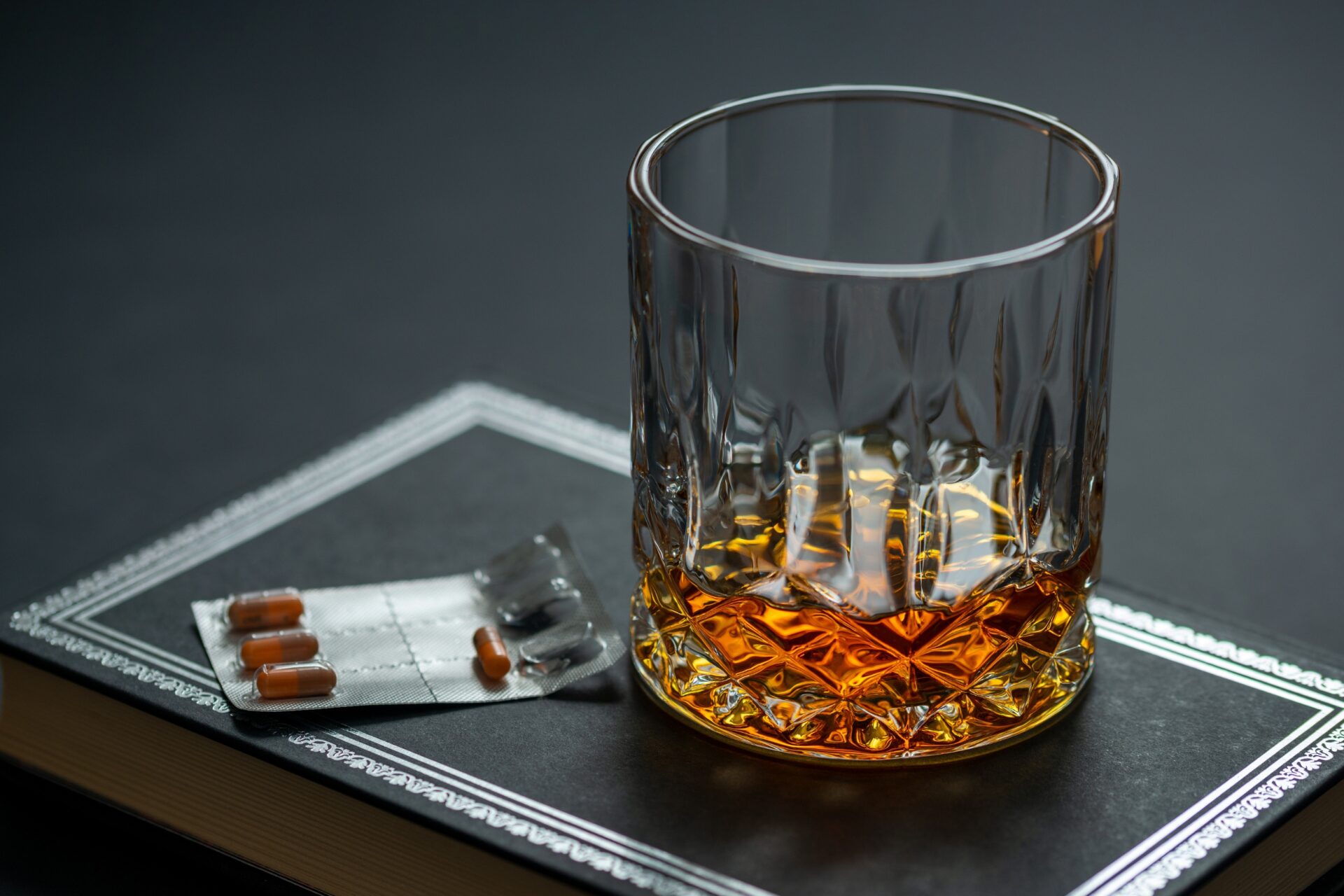
Mixing alcohol with medication is a dangerous practice that can lead to serious health complications. Whether it’s prescription drugs, over-the-counter medications, or even herbal supplements, combining them with alcohol can have unpredictable and potentially life-threatening effects. Despite the warnings on medication labels, many people are unaware of just how harmful this combination can be. In this article, we’ll explore the risks associated with mixing alcohol and medication, the reasons why these interactions occur, and what you can do to protect yourself. Whether you’re taking medication for a chronic condition or just the occasional over-the-counter remedy, understanding these risks is essential for your safety.
If you or a loved one is struggling with alcohol addiction, take the first step to a sober life! Reach out today by heading to our admissions page or calling us now.
Why Mixing Alcohol and Medication is Dangerous
When you take medication, your body metabolizes it in a specific way to ensure it works effectively. Alcohol, however, can interfere with this process, altering how your body absorbs, metabolizes, and eliminates the drug. This interference can either intensify the effects of the medication or reduce its efficacy, leading to a range of dangerous outcomes. For example, alcohol can increase the sedative effects of certain medications, leading to extreme drowsiness, dizziness, and even respiratory depression. In other cases, alcohol can diminish the effectiveness of medications, making them less effective at treating the condition for which they were prescribed.
Common Medications and Their Interactions with Alcohol
1. Antidepressants
Mixing alcohol with antidepressants can worsen symptoms of depression and increase the risk of side effects such as drowsiness, dizziness, and difficulty concentrating. Alcohol can also reduce the effectiveness of the medication, making it harder to manage depression or anxiety symptoms.
2. Pain Relievers
Over-the-counter pain relievers like acetaminophen (Tylenol) and ibuprofen (Advil) can cause serious liver damage when combined with alcohol. Prescription painkillers, especially opioids like oxycodone or hydrocodone, are even more dangerous when mixed with alcohol, potentially leading to respiratory failure or overdose.
3. Antibiotics
Some antibiotics, such as metronidazole (Flagyl) and tinidazole (Tindamax), can cause severe reactions when taken with alcohol. Symptoms can include nausea, vomiting, flushing, and rapid heart rate. In some cases, these reactions can be severe enough to require medical attention.
4. Sedatives and Sleeping Pills
Medications that are designed to induce sleep or reduce anxiety, such as benzodiazepines (e.g., Valium, Xanax) and sleep aids (e.g., Ambien), can have their sedative effects dangerously amplified by alcohol. This can lead to extreme drowsiness, impaired motor function, and even life-threatening respiratory depression.
5. Antihistamines
Over-the-counter antihistamines, often used for allergies, can cause increased drowsiness when taken with alcohol. This can impair your ability to drive or operate machinery and increase the risk of accidents.
6. Blood Thinners
Alcohol can interfere with the effects of blood thinners like warfarin, increasing the risk of serious bleeding or reducing the medication’s effectiveness in preventing blood clots.

Why Do These Interactions Happen?
The liver is responsible for metabolizing both alcohol and many medications. When you consume alcohol, your liver prioritizes metabolizing the alcohol over the medication, leading to a buildup of the drug in your system. This can enhance the drug’s effects or cause harmful side effects. Additionally, alcohol can alter the way drugs are absorbed in the gastrointestinal tract, further complicating their effectiveness.
Certain medications and alcohol can both depress the central nervous system (CNS), leading to an enhanced sedative effect. This can cause slowed breathing, impaired coordination, and even unconsciousness. The risk of such dangerous interactions increases with higher doses of both alcohol and the medication in question.
Long-Term Consequences of Mixing Alcohol and Medication
Repeatedly mixing alcohol with medication can have long-term health consequences. For instance, chronic alcohol use combined with certain medications can lead to liver damage, gastrointestinal bleeding, kidney damage, and increased risk of cardiovascular issues. For those on long-term medication for chronic conditions, the continued use of alcohol can significantly undermine treatment efforts, leading to poor health outcomes and potentially life-threatening complications.
Steps to Take if You’ve Mixed Alcohol and Medication
If you’ve accidentally consumed alcohol while taking medication, it’s important to monitor yourself for any adverse reactions.
Symptoms to watch for include:
- Extreme drowsiness or dizziness
- Shortness of breath
- Nausea or vomiting
- Rapid or irregular heartbeat
- Confusion or disorientation
If you experience any of these symptoms, seek medical attention immediately. It’s also important to inform your healthcare provider about the interaction so they can adjust your medication or provide guidance on how to manage the situation.
How to Avoid Dangerous Interactions
The best way to avoid dangerous interactions between alcohol and medication is to:
- Read Labels Carefully: Always check the warning labels on your medications. If it advises against consuming alcohol, take that warning seriously.
- Consult Your Doctor: If you’re unsure about the risks of mixing your medication with alcohol, talk to your doctor or pharmacist. They can provide personalized advice based on your health status and the medications you’re taking.
- Plan Ahead: If you know you’ll be drinking alcohol, discuss with your doctor how to manage your medication. In some cases, they may recommend skipping a dose or adjusting the timing to reduce the risk of interaction.
- Stay Informed: Stay up-to-date with the latest information on drug interactions. New research can shed light on previously unknown risks, so it’s important to remain informed.

Reach Out To Lake Ave Recovery in Massachusetts Today
At Lake Ave Recovery in Massachusetts, we understand the complexities of addiction and the challenges that come with managing medications while struggling with alcohol use. If you or a loved one is facing difficulties with alcohol and medication use, our team of professionals is here to help. We offer comprehensive treatment programs that address both substance use and mental health concerns, providing the support you need to achieve long-term recovery.
Call us today or head over to our admissions page to learn more about our services and how we can help you or your loved one on the path to recovery. Don’t let the dangers of mixing alcohol and medication go unchecked—take the first step toward a healthier, safer future by reaching out for help.
